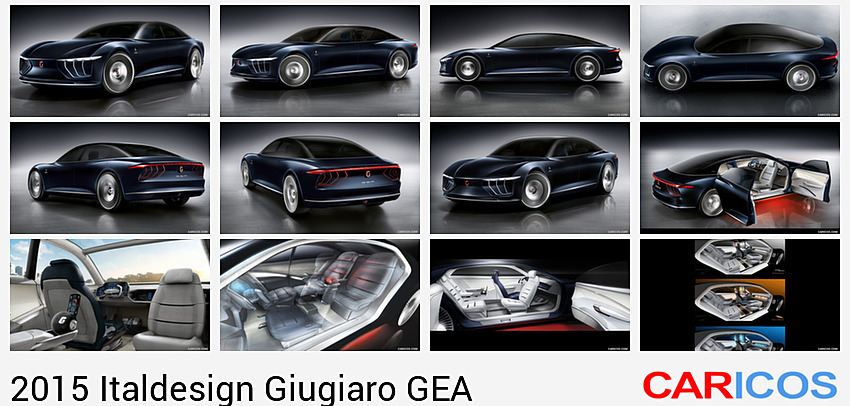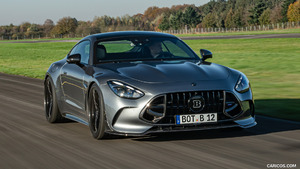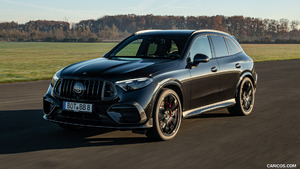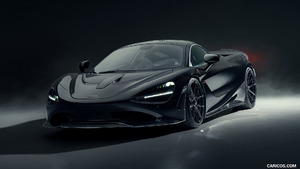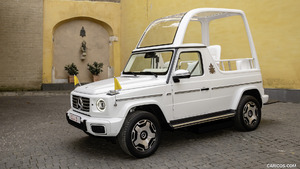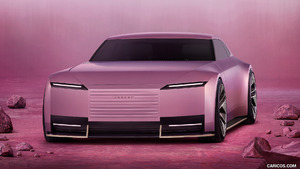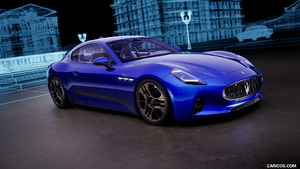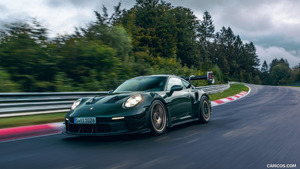Italdesign GEA
For the 85th edition of the Geneva International Motor Show, Italdesign Giugiaro presents the world début of GEA, the future of luxury mobility.
GEA’s vision is based on the “Piloted Driving” technology outlook for the future: technological advancement, which allows cars to drive increasingly autonomously, will call in the future for a new idea of automobile. The conceptual center of gravity shifts ideally from the driver's seat, around which the car's architectural and ergonomic philosophy is usually developed, to the passengers in the rear seats. Once the car drives autonomously through city traffic, on the motorway and in all those situations when driving is simply not a pleasure, it allows the occupants to focus on other tasks or interests.
“In the near future, the real luxury will be time,” comments Wolfgang Egger, Head of Styling Area of Italdesign Giugiaro. “When designing GEA we thought of the businessmen and businesswomen of tomorrow: the time spent travelling will become productive even in a car. With the three internal setting configurations, which can be selected on the control sphere situated between the two front seats, the car can turn into a travelling office, a wellness or a dream area. This is our vision of luxury mobility for the future”.
GEA doesn't sacrifice sports performance levels, guaranteed by a power train which, thanks to the four electric motors fitted on the differentials, develops 570 kW of power and affords a top speed of 250 km/h.. With its generous proportions – 5.37 meters long, a wheelbase of 3.33 meters, 1.98 m wide and 1.46 meters high – GEA joins the luxury saloon segment.
EXTERIOR: ALL-ITALIAN STYLE AND FLAIR
The sinuous lines, and dynamic surfaces, the painstaking care for details and the superior quality of the materials used continue the Italian tradition of car design, which pays particular attention to the proper proportions of the car body and to enhancing the value of details: GEA is a stylish saloon with a sporty twist.
The sporting soul of GEA is emphasized by the taut surfaces and the generous muscular wheel arches, which underscore their majestic dimensions. The materials used for the chassis and body, i.e. aluminum, carbon fiber and magnesium, guarantee a weight of just over 2,000 kg.
The technological innovation of the interior is also reflected on the exterior of the passenger compartment, in a continuous flow of information from the inside out. Indeed, the piloted driving technology allows a radical new car concept and affects the styling directly: when GEA is in driverless mode, the side windows are polarized and tinted to match the car body, painted Obsidian Blue, achieved with three coats applied between the fine pearl black and the deep xirallic blue. A slim chrome molding surrounds the glass surfaces, emphasizing the sophisticated and discreet elegance of the car. A second chrome element runs along the perimeter of the car body, enhancing the front bumper, door sills and the rear bumper.
The generous proportions of GEA are balanced by a 3.33 meter wheelbase and by the 26” wheels, which streamline and lighten the car. The wheel rims are in aluminum, milled from a solid block in a pattern with 60 spokes. The different treatment of the surface of each spoke, with diamond finish on the outside and dulled to opaque on the inside, also makes the wheel rims precious elements of extreme stylistic appeal. In the middle, the large red G conceals the single nut that connects the wheels to the hubs.
LIGHT CLUSTERS, THE NEW DESIGN FRONTIER
“For some years now, light clusters - thanks to new technologies - have shed their sole purpose of serving to become a distinguishing stylistic feature,” continues Wolfgang Egger, “and they are further cause for creative stimulus for us designers. With GEA we went further still: in this case, they become a communication tool between the interior and the exterior. The LEDs change color according to the driving mode selected: white in normal configuration and blue with piloted driving.”
The front and rear lighting system is based on Audi laserlight and LED technology. The red G which has distinguished all Italdesign Giugiaro concept cars since 2007, set in the middle of the rear, is illuminated and contains the camera which serves as both a rear-view mirror and a parking assistant.
WIRELESS OPENING AND VIRTUAL RED CARPET
In this vision of the luxury mobility of the future, even getting into the car takes on a brand new connotation. Thanks to the book-type doors, to the absence of a B-pillar and to the virtual red carpet projected onto the ground by the LED inserted in the door sill, passengers gain easy access to the inside of the GEA's lounge.
ONE PASSENGER COMPARTMENT, THREE SETTINGS
The conceptual center of gravity around which GEA has been developed has shifted to the rear seats. This is where the real passenger compartment control center is: a sphere to fit with the LG G-Flex. Indeed, the smartphone has been installed with an app, developed in conjunction with the Korean manufacturer, that makes it possible to interact with all the vehicle functions, from the choice of the three different settings to more typical adjustments (seats, climate control, door opening, infotainment control).
Business mode
When business mode is selected, GEA turns into a genuine travelling office. The LEDs in the door panels project a white light which, according to the principles of chromotherapy, aids concentration and productivity. Two transparent LED screens measuring 19” each come down from the roof opposite the rear seats and the passenger can choose the information to project onto them. The dashboard graphics change and create a single setting to match the background of the two screens.
The front passenger seat can swivel 180° to face opposite the direction of travel, facilitating dialogue among all passengers; alternatively, the seat back can be folded down fully onto the seat to turn it into a practical counter top.
Wellness mode
The wellness mode, developed in conjunction with Technogym, is ideal during long journeys because it allows the passenger to perform isometric exercises, which are ideal to warm up the muscles. In this case, the LEDs in the panel turn an amber color, for a warmer and more relaxing ambiance.
The rear seats feature two aluminum handles which, on pressing a sensor, come out of the tray to be used for exercises on the upper body. For the lower limbs, the floor has been fitted with two boards, also made by Technogym, which can be raised using the controls for use in step exercises. A tutorial video with the Technogym exercise programs appears on the monitors to guide the user.
There is also a small refrigerator compartment between the two seats which can be used for cold drinks and juices. At the top, a small drawer contains cosmetics and a perfumed pouch for aromatherapy.
Dream mode
Dream mode is dedicated to total relaxation. The LEDs project a relaxing blue light, the windows darken and relaxing pictures of galaxies and starry skies appear on the monitors and on the front dashboard. Two comfortable footrests can be extended out from the seats and the right-hand rear seat can extend fully to form a real bed joining up with the front seat, swiveled to face opposite the direction of travel but with the seat back up, to reproduce the typical environment found when flying first class.
ITALIAN MANUFACTURING AND FINE MATERIALS: WELCOMING HIGH-TECH INTERIOR
The setting is split into two separate areas, also in terms of colors: the driver's area and the passenger area. Inside, the painstaking care for details, the attention to the materials used and the creation of various atmospheres are key concepts which have led the designers to create a precious and welcoming setting in which to abandon oneself entirely. The neutral colors of the materials used – woven parchment-leather, painted lacquer, smooth opalescent parchment-leather and soft shiny silk – not stained but instead retained in their natural coloring, create a delicate and precious ton sur ton effect. The emotional theme of the surfaces is “writeability”, the nabuck leather and the silk carpet afford two-tone tactile effects which simply ooze luxury and wealth.
The door panels are upholstered in parchment-leather and back-lit with an LED system. The material is used on the entire panel but the different finish on the upper - hand-woven according to great Italian manufacturing tradition - and the lower – smooth – section livens up the generous surface. The floor is covered with a silk carpet, also hand-made, which gives the feeling of being inside an exclusive setting. The ceiling light and the speakers are on the other hand made of micro-perforated stainless steel.
A thin pattern of optic fibers runs along the pillars and the side rails, to lighten the perception of the architecture thanks to fine diffused lighting.
The cluster placed opposite the driver is completely digital. A 12” screen displays, using a purpose-designed graphic interface, all the information useful for driving and controlling the vehicle (speed, engine revs, navigation, battery charge level, residual range, etc.) and on either side two 3.5” screens have been fitted vertically, which project the pictures from the side cameras. When maneuvering, the central monitor projects the pictures from the rear camera instead. The cluster also features six touch controls on either side, three facing the driver and three hidden away from view yet easy to reach even when driving, which are necessary to turn on the lights, to use the direction indicators, the windscreen wipers… Three classic buttons are instead inserted on the underside of the steering wheel to be used to enable or disable the car, to select the speeds and to select the piloted driving function.
The dashboard has been fitted with a 3-D holographic screen – an evolution of the one presented last year on board the Giugiaro Clipper – which runs along the perimeter of the width projecting pictures and graphics to match the selected setting mode.
In the seat tray, on the right, there is a compartment to house the LG G-Flex smartphone on which the dedicated car apps have been installed. Once connection between the device and the car has been established, the apps are sent to the central cluster monitor whereas only the controls to adjust the seat remain on the phone's touch screen.
The entire driving system is controlled electronically and it is designed to make the controls totally intuitive. With a view to achieving superior ergonomics, the steering wheel, which has been minimized to almost a control stick here, only turns 2°: the potentiometer inside it assesses the force exerted by the driver on it and acts accordingly on the front wheels: the greater the force, the greater the steering angle. Similarly, the pedal unit comprises two fixed pads: the sensors inside the accelerator and brake detect the pressure exerted and operate accordingly by distributing more or less power and braking power.
The architecture of GEA develops around a platform devised specifically with a new layout capable of incorporating the 375-litre batteries that power the four electric motors, of 142 kW each, housed on the differentials.
The power train develops 570 kW and reaches a top speed of 250 km/h. The recharging system is induction, which is a solution that dispenses with the need for a side flap for the electric socket, thereby guaranteeing continuity in the smooth silhouette of the car body.

